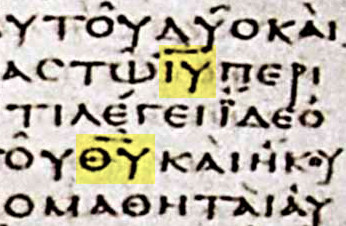Good evening to you as well.
Good idea, let's check.
Well. The scripture you brought does not use the name you have chosen, so that's a problem.
In greek it's Θεοῦ , and Θεὸς. Theos, basically. A generic word for divinity not a name.
Please consider Hannah in 1 Samuel 1, the quintessential example of prayer:
And she was in bitterness of soul, and prayed to YHVH, and wept bitterly.
And she vowed a vow, and said, YHVH-Tz'vahoht, if you will indeed look on the affliction of your maidservant, and remember me, and not forget your maidservant, but will give to your maidservant a male child, then I will give him to the Lord all the days of his life, and there shall no razor come upon his head.
And it came to pass, as she continued praying before the YHVH, that Eli observed her mouth.
And Hanna spoke in her heart; only her lips moved, but her voice was not heard; therefore Eli thought that she was drunk.
...
Then Eli answered and said, Go in peace; and Elohai-Yisrael grant you the petition that you have asked of him.
...
And it came to pass, in due course, that Hanna conceived and bore a son, and called his name Samuel, saying, Because I have asked him from YHVH.
So, Hannah uses the name YHVH-Tz'vahoht. Eli uses the name Elohai-Yisrael. And the prayers were answered.
It's a much better example than Acts 17, don't you think?
Then there's Psalm 145. Arguably the 2nd best example of praise and prayer in scripture.
The Lord is near to all those who call upon him, to all who call upon him in truth.
Notice. This is conditional on truth, not on which name is used. If the entire Psalm is read, King David describes precisely what it means to 'bless the holy name". It has nothing to do with consonants and vowels. It has everything to do with what God does. God's reputation.
And, if that's not enough, please consider the 10 commandments. Exodus 20:6
And showing mercy to thousands of those who love me, and keep my commandments.
Notice, again, what are the conditions? Love and keep. Knowing how to pronounce the name is irrelevant.
Well yes and no. Acts 17 towards the end is about idol-worship. The sermon is inspired by an idol labeled 'unknown god'. The preacher uses this as the beginning of the sermon and tells them what is known about God; tells them God is not make of precious metals and stone. God is not an idol.
Naturally the preacher in Acts 17 wants to convince them also of the truth of Christ, but, nothing in the entire chapter supports this notion you have brought in this thread:
"If you're not using yahweh as the name of God, then it's not praise."
Hannah knows what to do.
Eli knows what to do.
King David knows what to do.
None of it is bound to a specific pronounced name.
Hannah spoke in her heart and only her lips were moving.
Yes, you most certainly should.
The story has nothing to do with divine names does it?
Not true. You have been given scripture which supports different names. Please forgive me, but, how well do you know the book of Psalms?
Perhaps one of the most important psalms in the whole book, 51. Are you claiming King David prayed in vain? The prophet Nathan says he was forgiven. Verse 3:
חנני אלהים כחסדך כרב רחמיך מחה פשעי׃
Be gracious to me, O God, according to your loving kindness; according to the multitude of your mercies blot out my transgressions.
That's NOT 'yahweh'.
If what you're saying is true, King David would not have been forgiven. 'yahweh', the name, does not exist in that Psalm. Verse 12:
לב טהור ברא־לי אלהים ורוח נכון חדש בקרבי׃
Create in me a clean heart, O God; and renew a constant spirit inside me.
I repeat. That's NOT 'yahweh' either.
If what you're saying is true, King David would not have been forgiven. 'yahweh', the name, does not exist in that Psalm.
You can do whatever you want. But it's clear that multiple different names are acceptable.
Who told you that praise is unlawful using any other name? After reading the scripture I brought, isn't it clear I was right in my reply to this thread? Making claims like this indicates ignorance not knowledge?
If this is the same source that declares with certainty, 'yahweh' is the correct pronunciation, do you still trust them for accuracy? Clearly they do not know scripture.
I find it repugnant to make a declaration like this. The Almighty can choose to respect or not to respect whomever, whenever, for any reason, and for no reason. Isaiah knows. 55:8
For my thoughts are not your thoughts, nor are your ways my ways, says the Lord.
Another story that has nothing to do with which name was used. The story tells you the difference between their offerings.
Abel brought the best of the flock.

